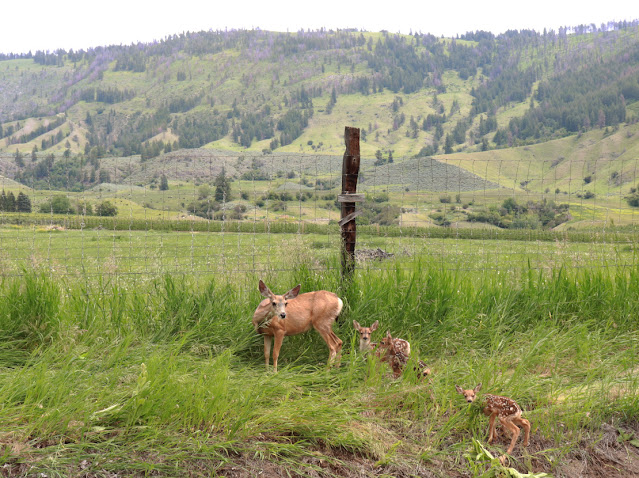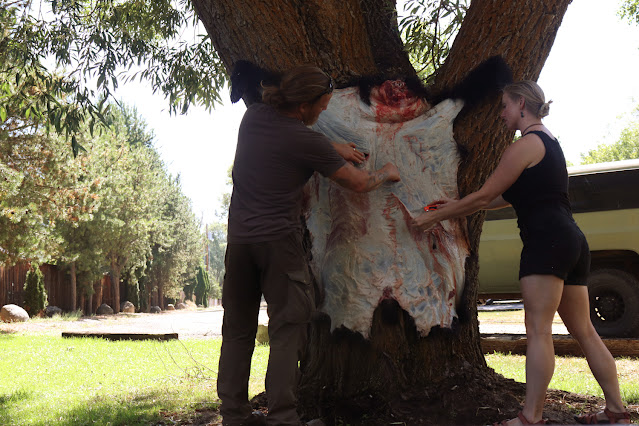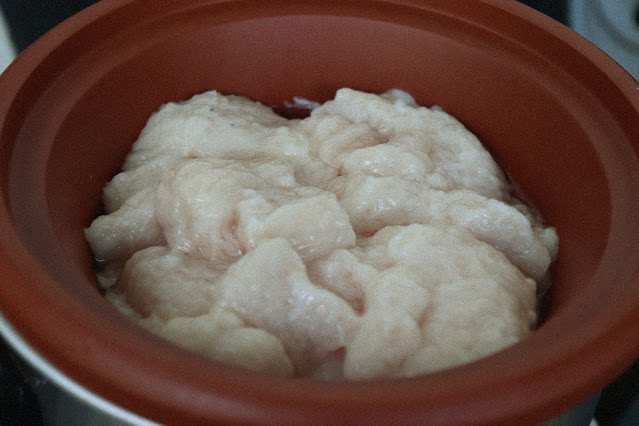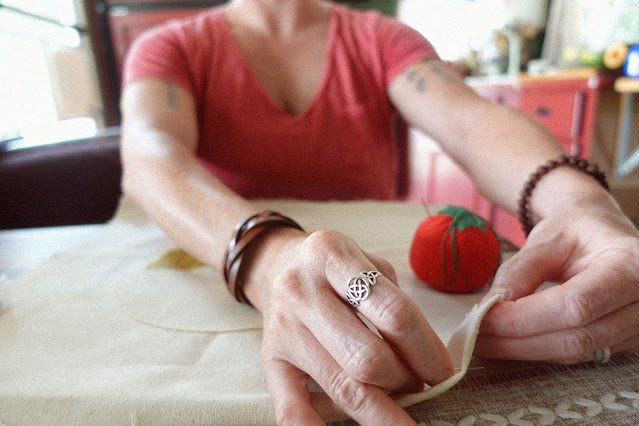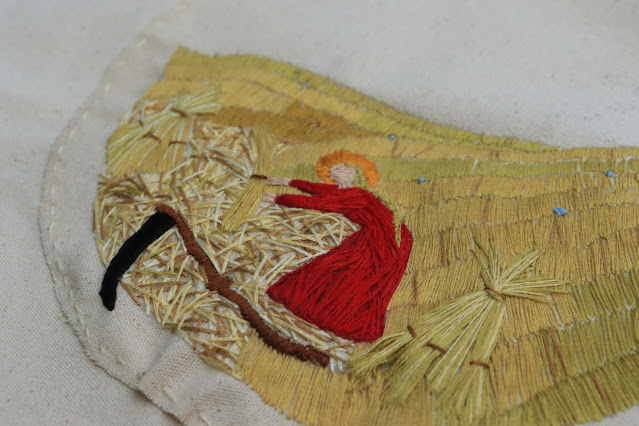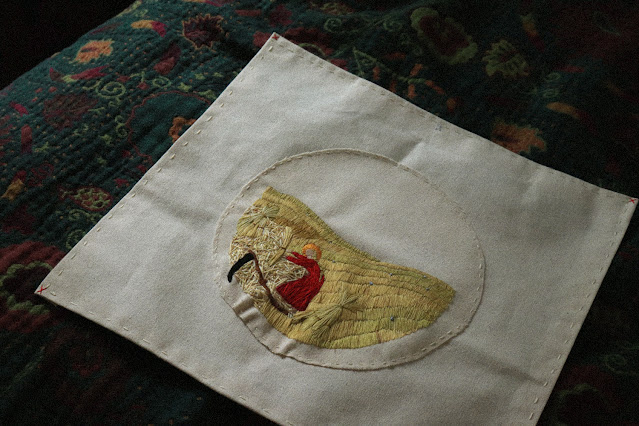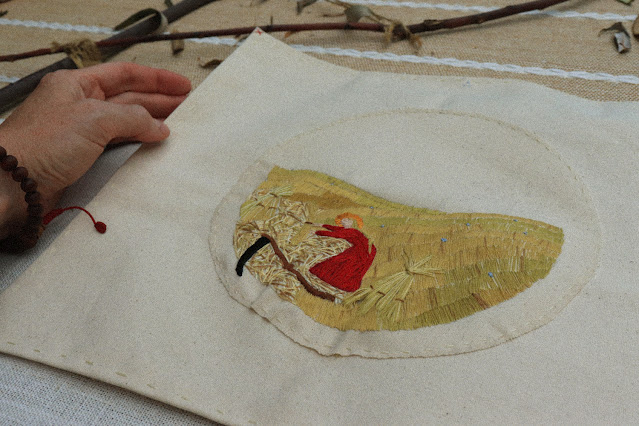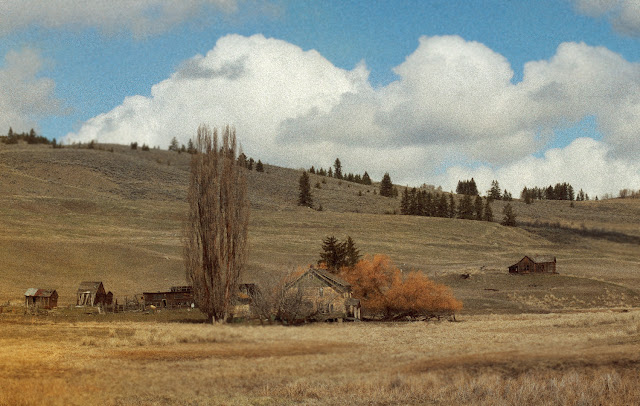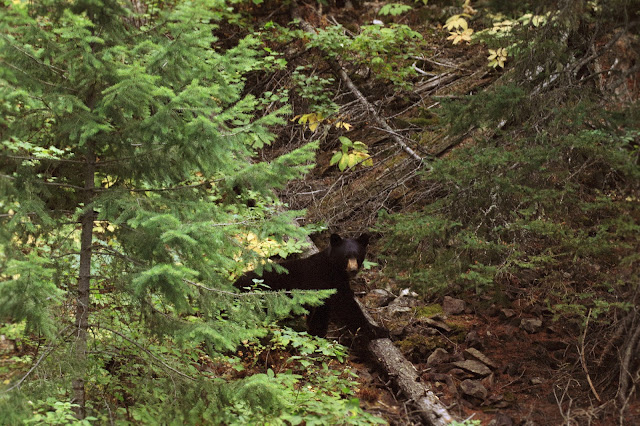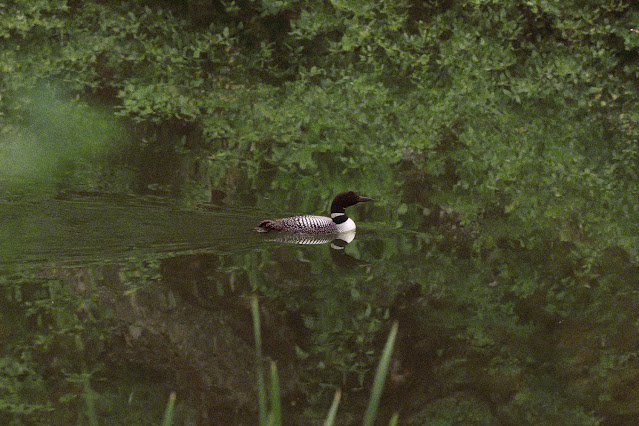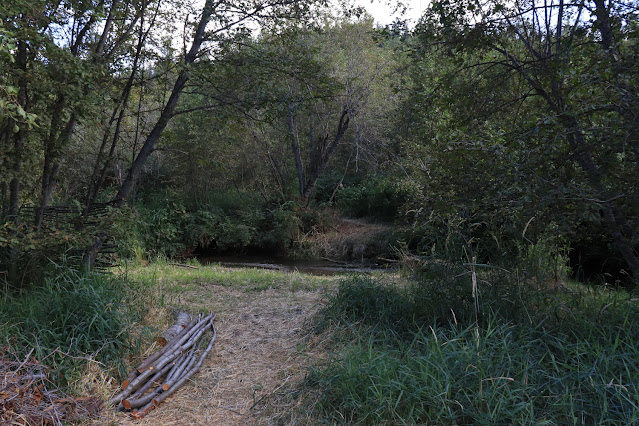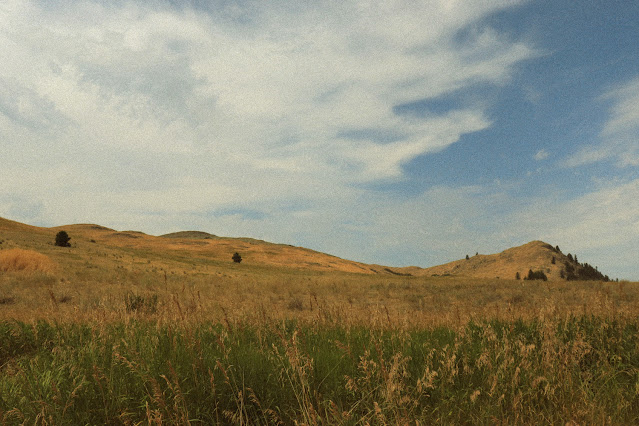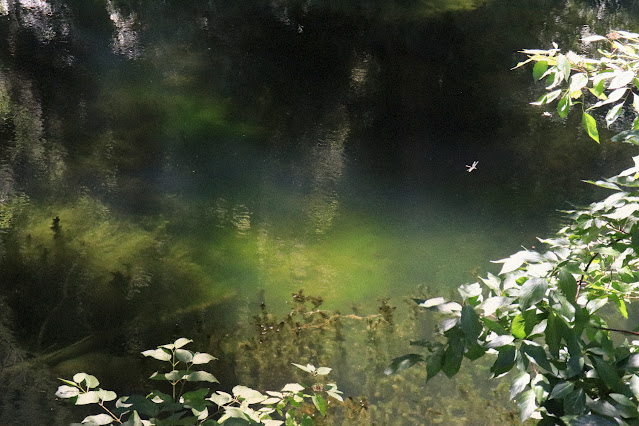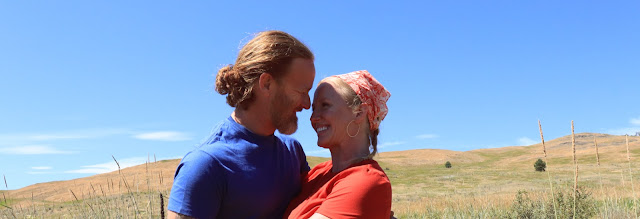Now I'll turn back the pages of summer, and pluck a tale or two for sharing here with you. So off we go!
A main theme that has coursed through the days of this summer has been gathering sustenance from the land. Though I've foraged for well over a decade, never have I taken it quite so seriously as this summer. Maybe it's the rising food prices, the rumors of scarcity and supply chain issues, and maybe it's for the sheer joy that comes with engaging in a relationship with the land that supports and holds you. Whatever your reason, I do know that acquainting oneself, intimately, with the seasonal rhythms of a particular landscape feels grounding, nourishing, and essential.
On that same afternoon, we stumbled upon a lovely Elder all in elegant creamy-white bloom! And I took a few of those blossoms, too. These I made into Elderflower fritters, which you can also see.
They reminded me of elven food- a light lunch maybe shared amongst Rivendell inhabitants beneath an ivory gazebo while discussing the higher-natured nuanced details of life in Middle Earth...
Then, with the summer sun climbing ever higher, the wild rose petals came, and me and the pollinators were all abuzz in nectar-laden jubilee. With a friend and her children, we clambered along a lakeside trail, picking one or two petals from each flower, being careful to leave plenty for the bees and the promise of Autumn rosehips.
I used these dainty petals to add a subtle aroma to my fireweed tea, another big foraging foray this year. Ahead of even linen and fur, "Ivan Chai" was once upon a time Russia's leading export. You get this delectable tea by fermenting the leaves of the Fireweed plant, which grows abundantly here in the fire-ravaged highlands. It's a week-long process: gather, wilt, roll, ferment, dry. Warrior tea, it's also called. Born of fire.
Fireweed tea has been studied for bladder, kidney, and prostate health amongst other things, and found to be very healthful, so we've been having a hot cup in the evenings and have found it to be especially good with a dash of heavy cream.
And then, as the summer wheel rolled on, the inarguable queen of the foraging season popped out in its sun-warmed purple-tasting glory...
...the huckleberry!
We spent many afternoons hunched over squatted down amongst secret huckleberry patches, with magenta-stained hands, the heat of the sun baking the forest and causing a euphoric aroma-cloud of pine and huckleberry to enshroud us. If summer has a scent here, in my mind, it is this.
On those hot afternoons, after we had picked our fill of huckleberries, usually we'd go over to our favorite lake to swim. What a rich blessing it is to have access to these high mountain lakes, lakes of deep blue water, shimmering, clean, cold even in summer. I swam with my husband, I swam with friends, I swam alone, into the depths this summer, not lingering around the shore as I usually have, no- this summer, I let my body feel the silky weightlessness of a real swim, of floating looking up into the clouds, and it turned into such a looked-forward-to ritual, something I really grew to hold dear this summer. Looking back, these swims with the mysterious depths beneath me, were symbols of a giving in to the mystery, a kind of surrendering to the unknown, an exchange of fear, even if small, with trust.
I'll cherish the blissful hours spent swimming this summer for a long time to come, and reach back to let them warm me during the dark cold days ahead.
One night in June, on the way home over a mountain pass, we drove by what looked like a dead deer on the side of the road, but I happened to hone in on his face as we drove by and saw that his eyes were still... unfortunately alive. So we turned around, went back, and sure enough- the poor thing was still alive. He had just been recently hit. His lower half was mangled from the impact, he was unable to move, and he would've probably been in for a long slow death had we not happened by. Eric ended his misery and I called a salvage permit tag in to the department of fish and wildlife- we weren't going to let him go to waste.
Despite being already tired, we worked on him late into the night, then slept a few hours and got up early the next morning to go back at it. We ended up adding about 50 pounds of venison to the freezer for our efforts, which we deemed very much worth it. I've always heard that animals who die in these difficult ways, with prolonged suffering, release a lot of adrenaline and this makes the meat tough. But we both agree this is some of the most tender venison we've ever had.This deer wasn't that fortunate. I know accidents happen, so my intention is not to pass judgment, but if you're someone who speeds through the roads where wild things roam, and you get behind someone like me, who is taking it easy, and maybe going slower than you'd hope, know that this is just one reason why. Behind any tall grass, stepping out from any forest edge, or around any curve could be a creature, just trying to get across (our roads do intersect their foraging grounds after all). Traveling slower affords one more time to react to anything unexpected, and not only save the life of a creature just trying to pass through, but could very well save your own. Just something to consider when driving, though I know we all have our own hierarchy of concern, and quota of care, and the world is in such a hurry.
..:..:..:..
Most evenings when it's just me left awake, I sit quietly, a hot mug of Ayurvedic spiced milk or Rooibos Chai beside me, and I embroider. It doesn't take long for the punctures of my needle through the linen to become a rhythmic meditation. Before I know it, an hour has passed and I move on to reading and then prayer before finally going to sleep. I don't know why I started embroidering all those years ago, but I'm glad I did. In truth, I don't even know if it's proper "embroidery" or if it's something else altogether, or even nothing at all. I'm not trained, I don't follow any specific stitches, I just move my needle and thread in and out for dozens of hours until it feels complete. Over time, this craft has morphed into what I think is a very original expression of my own- sort of a 'folk' embroidery with esoteric undertones as I do enjoy ancient and alchemical symbolism and that, along with arcane ideas and beliefs, certainly inspires these stitched pieces of mine (<< click that link to see more).
So as the green summer land gradually turned to gold, I spent most evenings stitching fields of flax. This particular work took me far away, somewhere and somewhen else- a place that felt like Pillars of the Earth, and like a Pieter Brueghel painting. A place that felt very familiar...
This one I've named simply The Flax Grower. Though, the golden halo around her golden head seems to imply there's more to it than just the physical labor or occupation we see. More to her than just a flaxen-haired commoner... something happening beyond the mere observable doing. But I'll leave the rest for your own interpretation. Who is this woman? What does she know?
.:*:.
*

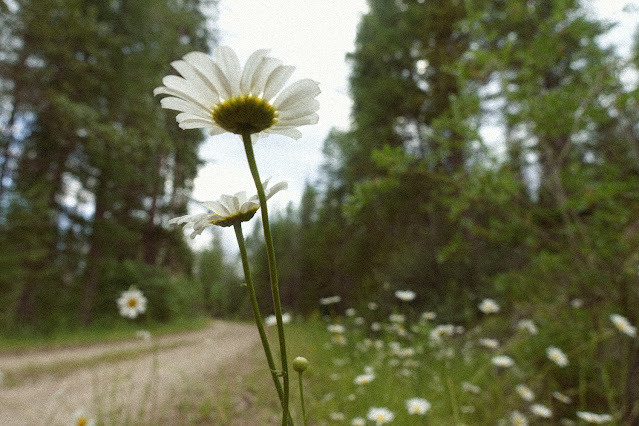
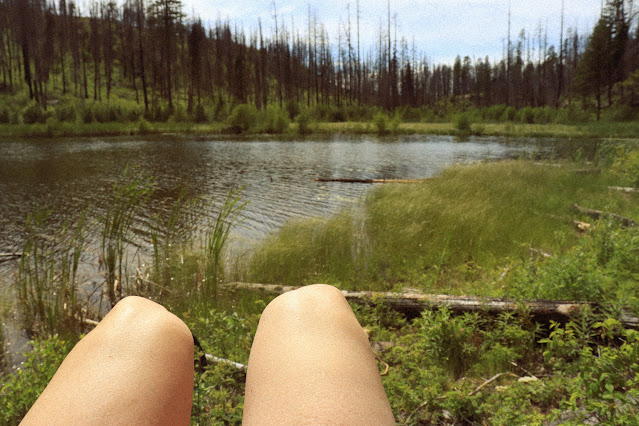



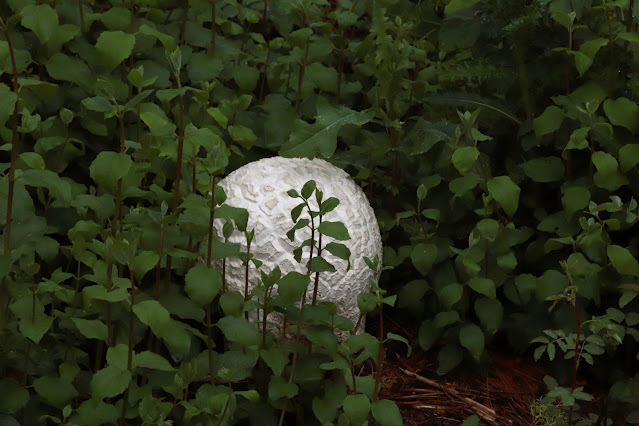
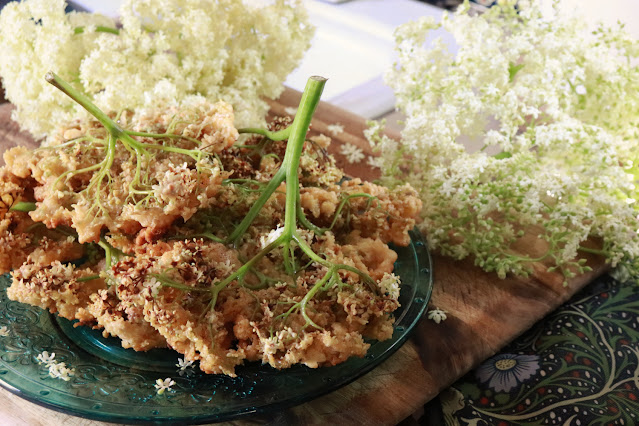
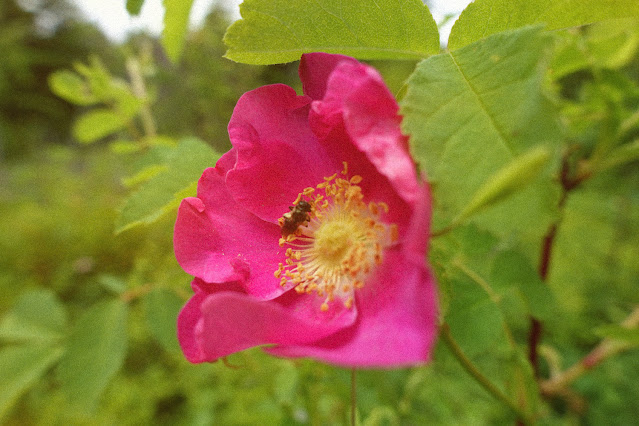
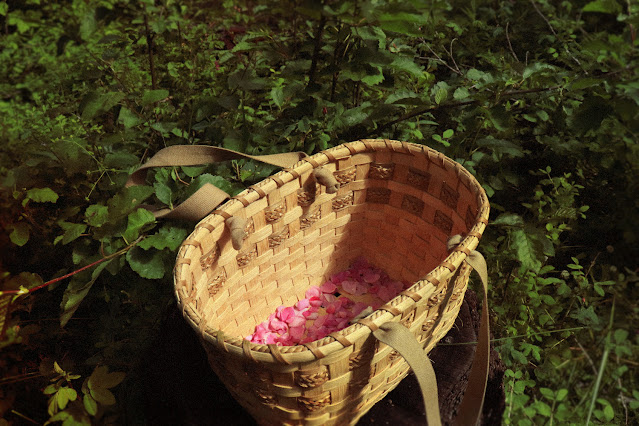
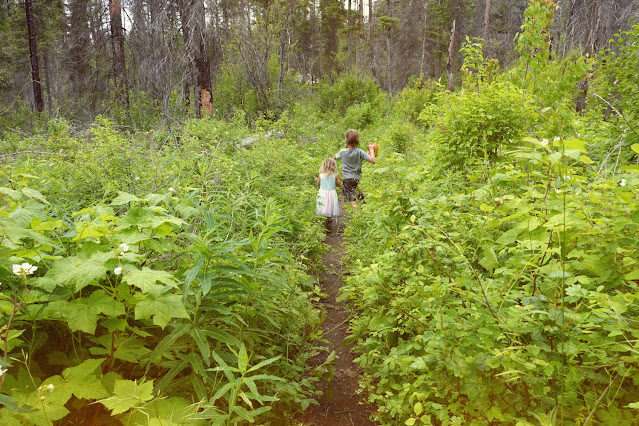
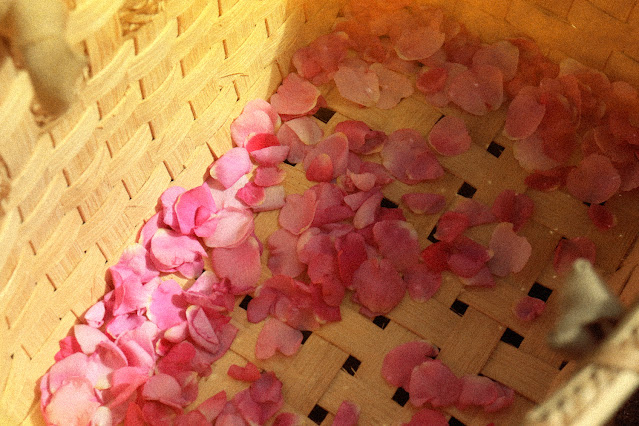
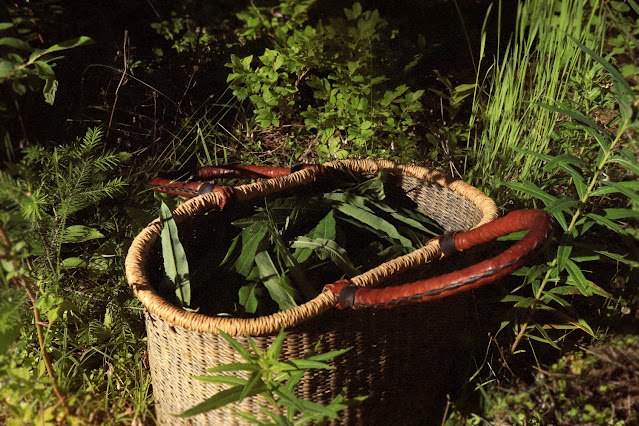
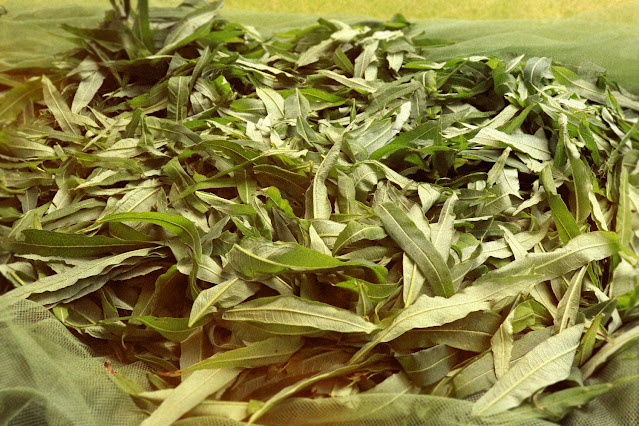

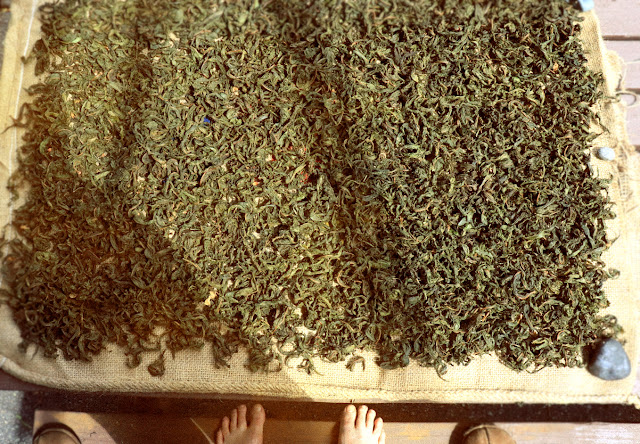
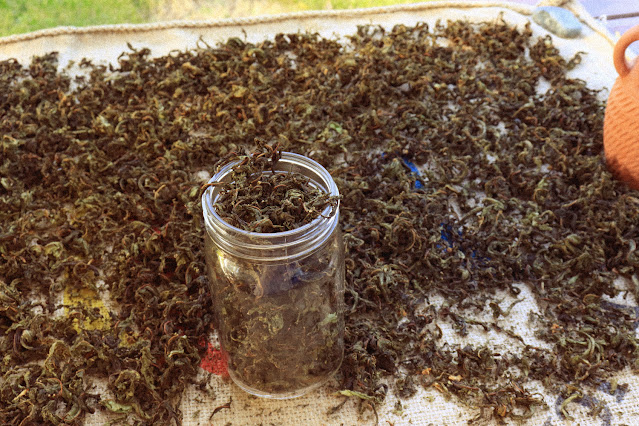
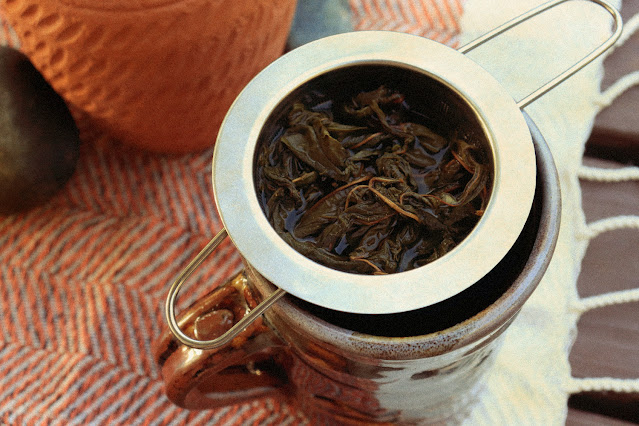
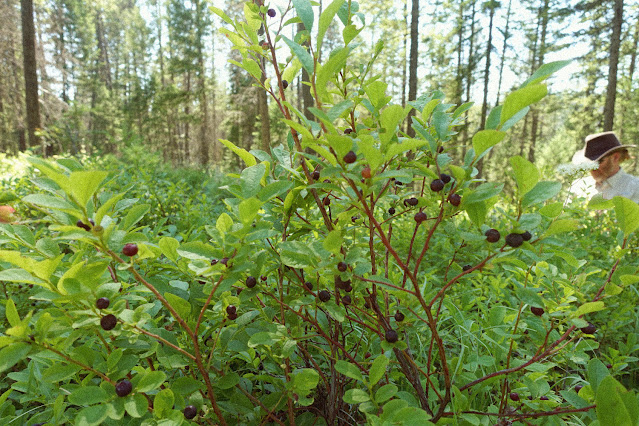
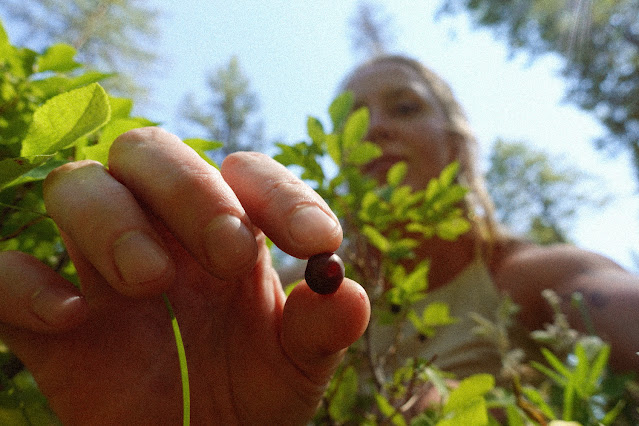

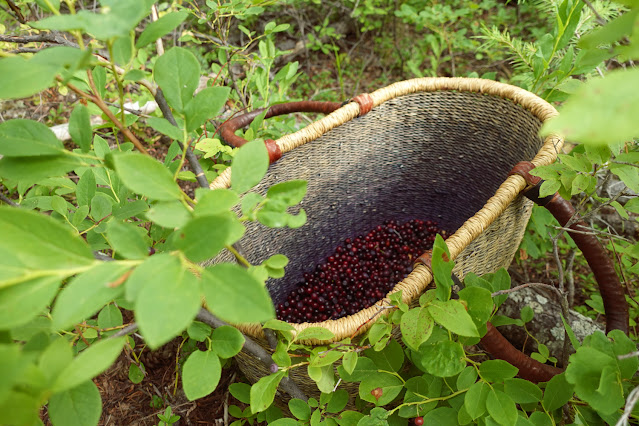
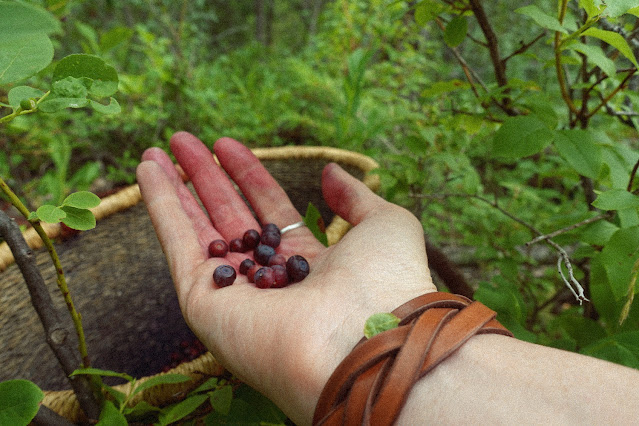

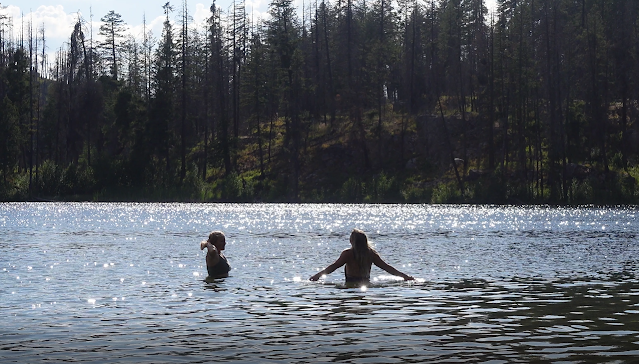
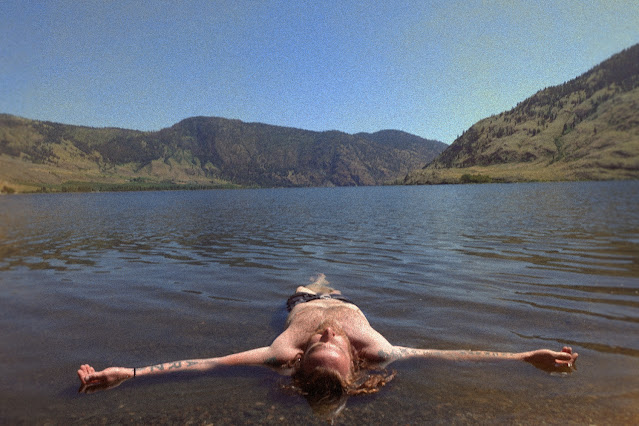
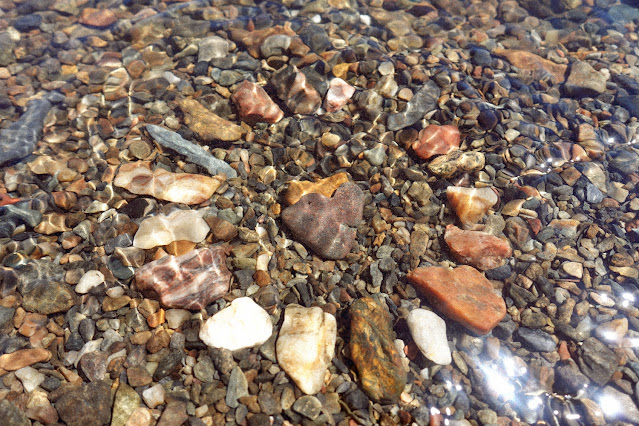
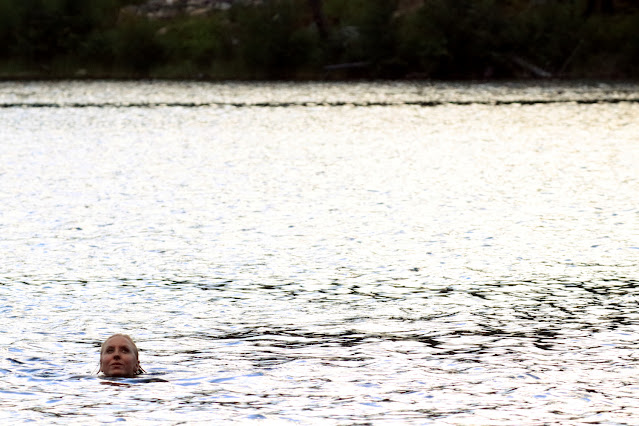

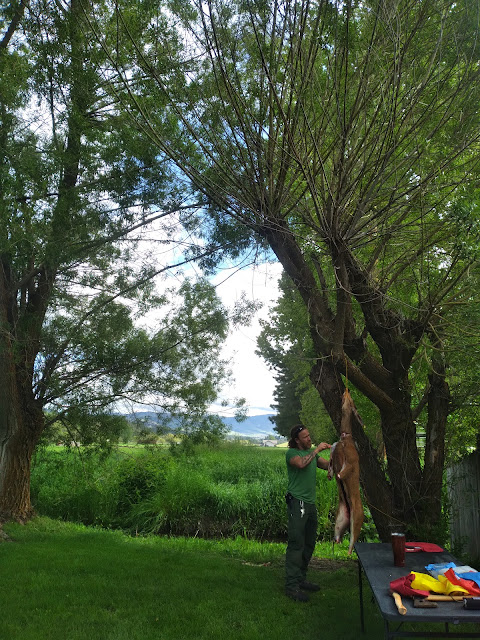
.jpeg)
